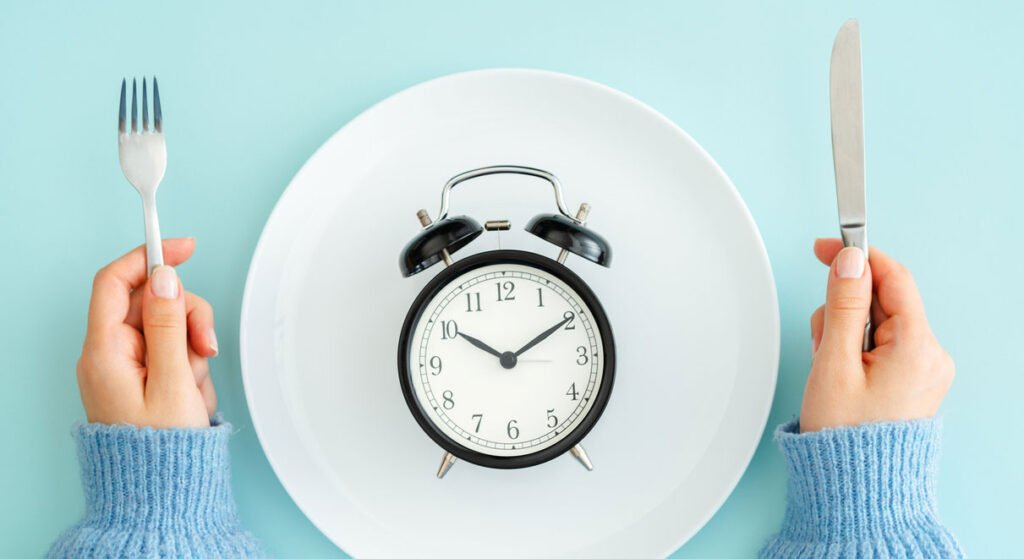As women enter their 50s, they often experience significant hormonal changes that can affect metabolism, energy levels, and weight management. Intermittent fasting (IF) has gained popularity as a potential weight loss and health improvement strategy. However, it’s essential to understand how it can impact women over 50, considering their unique needs and challenges. Here’s what you need to know about intermittent fasting for women in this age group.
1. What is Intermittent Fasting?
Intermittent fasting is an eating pattern that cycles between periods of eating and fasting. It doesn’t prescribe specific foods to eat but rather focuses on when to eat. Common methods include:
- 16/8 Method: Fasting for 16 hours and eating during an 8-hour window (e.g., eating from noon to 8 PM).
- 5:2 Diet: Eating normally for five days and reducing calorie intake to about 500-600 calories for two non-consecutive days.
- Eat-Stop-Eat: Fasting for 24 hours once or twice a week.
2. Benefits of Intermittent Fasting for Women Over 50
While intermittent fasting can offer benefits for anyone, women over 50 may find it particularly advantageous due to several factors:
- Weight Management: IF can help regulate insulin levels and support weight loss by reducing overall calorie intake. For women facing hormonal changes that make weight loss more difficult, this can be beneficial.
- Metabolic Health: Intermittent fasting may improve insulin sensitivity, lower blood sugar levels, and reduce the risk of chronic diseases such as type 2 diabetes and heart disease.
- Cognitive Health: Some studies suggest that fasting may enhance brain health and cognitive function, which is especially important as women age.
- Cellular Repair: Fasting promotes autophagy, a process where the body cleans out damaged cells and regenerates new ones, potentially reducing the risk of age-related diseases.
3. Considerations for Women Over 50
While intermittent fasting can be beneficial, there are important considerations for women over 50:
- Listen to Your Body: As hormonal changes occur, women may experience symptoms like fatigue, mood swings, or increased hunger. It’s essential to listen to your body and adjust fasting methods accordingly.
- Nutrient Intake: During eating periods, focus on nutrient-dense foods to ensure you’re getting essential vitamins and minerals. Prioritize lean proteins, healthy fats, whole grains, fruits, and vegetables.
- Hydration: Staying hydrated is crucial, especially during fasting periods. Drink plenty of water, herbal teas, or black coffee to stay hydrated and curb hunger.
- Consult a Healthcare Provider: Before starting any new dietary approach, especially one that involves fasting, it’s wise to consult with a healthcare provider or nutritionist to ensure it aligns with your health goals and conditions.
4. Potential Risks and Challenges
While many women find success with intermittent fasting, it’s not without challenges. Some potential risks include:
- Nutritional Deficiencies: If not planned properly, fasting can lead to inadequate nutrient intake, which can be particularly concerning for women over 50 who need to maintain bone health and muscle mass.
- Impact on Hormones: For some women, fasting can disrupt hormone levels, potentially leading to increased stress and anxiety. It’s essential to find a balance that works for your body.
- Social and Lifestyle Considerations: Fasting may affect social meals and gatherings, making it crucial to plan ahead and communicate with friends and family.
5. Tips for Success with Intermittent Fasting
If you’re considering intermittent fasting, here are some tips for success:
- Start Slowly: If you’re new to fasting, begin with a shorter fasting window and gradually increase it as you become more comfortable.
- Stay Flexible: If you find that a particular method isn’t working for you, feel free to adjust your approach. Intermittent fasting should fit into your lifestyle, not the other way around.
- Focus on Quality: During eating windows, prioritize whole, unprocessed foods to maximize nutrient intake and support overall health.
- Stay Active: Incorporate regular physical activity, which can enhance the benefits of intermittent fasting and support weight management.
Conclusion
Intermittent fasting can be a valuable tool for women over 50 looking to manage weight, improve metabolic health, and enhance overall well-being. However, it’s essential to approach it mindfully, considering individual health needs and lifestyle factors. With the right planning and support, intermittent fasting can be an effective strategy to promote health and vitality in your 50s and beyond. 🌟

